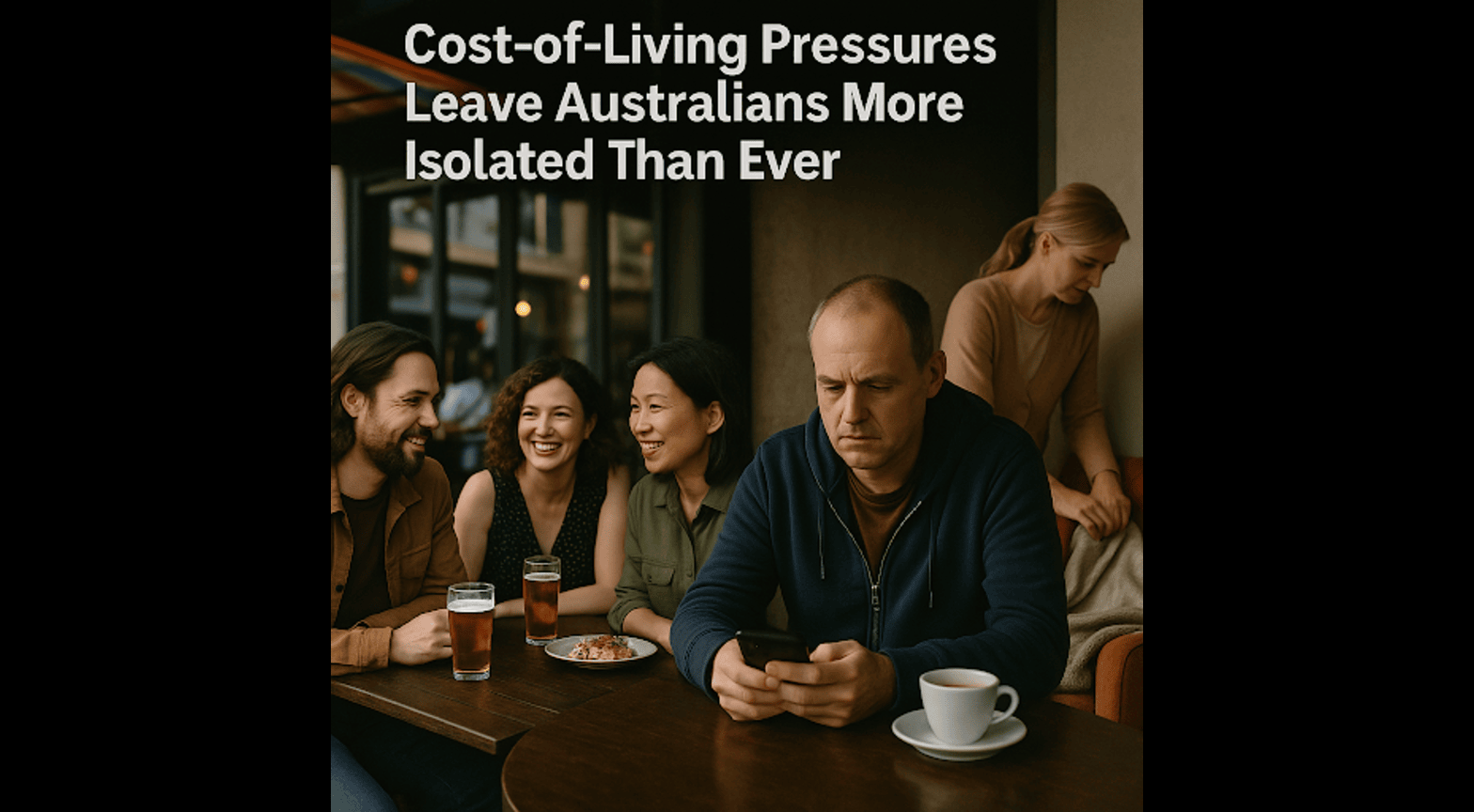Cost-of-Living Pressures Leave Australians More Isolated Than Ever
It has also been reported that a concerning pattern is traversing the entirety of Australia, as citizens are socialising than it has ever been, and the decrease is beginning to take its toll on mental and physical health. Beyond Blue states, as well as statistics provided by the Household, Income and Labour Dynamics in Australia (HILDA) Survey, the ratio of social interaction in person has been gradually declining over the last twenty years, and even now, following the lifting of pandemic restrictions, the rates of socialisation have not yet reached the level they were before the pandemic.
The statistics indicate that the Australian people, especially those who are in their mid-life years, are least likely to meet with their friends or relatives. Approximately 39.6 per cent of individuals in the age group (45-54) say that they visit family, friends at least once a week. Researchers have indicated that this age bracket tends to be under a lot of pressure; working, raising children and taking care of their ageing parents, and therefore do not have much time and resources to engage in social activities.
Scholars indicate multifarious causal factors of this decrease. The increasing cost of living has decreased the amount of disposable income and turned social outings into luxuries. Concurrently, the emotional burden has been increased by the housing strain, conflicts in the world, and the increasingly polarising nature of the language being used in the mainstream. Probably, the number of individuals who have substituted face-to-face interactions with online communications has increased as well; individuals use texts, video calls, and social media to communicate with each other, but experts believe that such communication lacks the emotional advantages of the physical connection.
Humans are social beings, as stressed by psychologists. Face-to-face interaction will ensure mental well-being, decrease anxiety levels, and make one feel a part of the community. Isolation and loneliness are, on the contrary, associated with depression, poor sleep, and even high blood pressure. One mental health expert said that losing the chance to build deep and meaningful relationships may lead to actual psychological distress.
Through such difficulties, little can do a lot. Professionals recommend individuals to begin with inexpensive or spontaneous types of interaction a stroll with a neighbour, a fast discussion over coffee or even short communications with colleagues. Their quality of interaction, they observe, is frequently more significant than the frequency. Developing the depth and realness of relationships assists in the strengthening of emotional connections and in developing resilience.
Finally, the deterioration of socialising is not just a matter of an individual concern but a wider societal development. Australia will find itself losing the social fabric that holds communities together, as communities are increasingly disintegrating and physical presence is replaced by digital communication. The restoration of such a feeling of attachment, specialists caution, will not only be essential to personal health, but also to the health of the whole society.
Read More: King, Pope, Jedi, Superman: How Trump’s Social Media Blurs Political Reality







